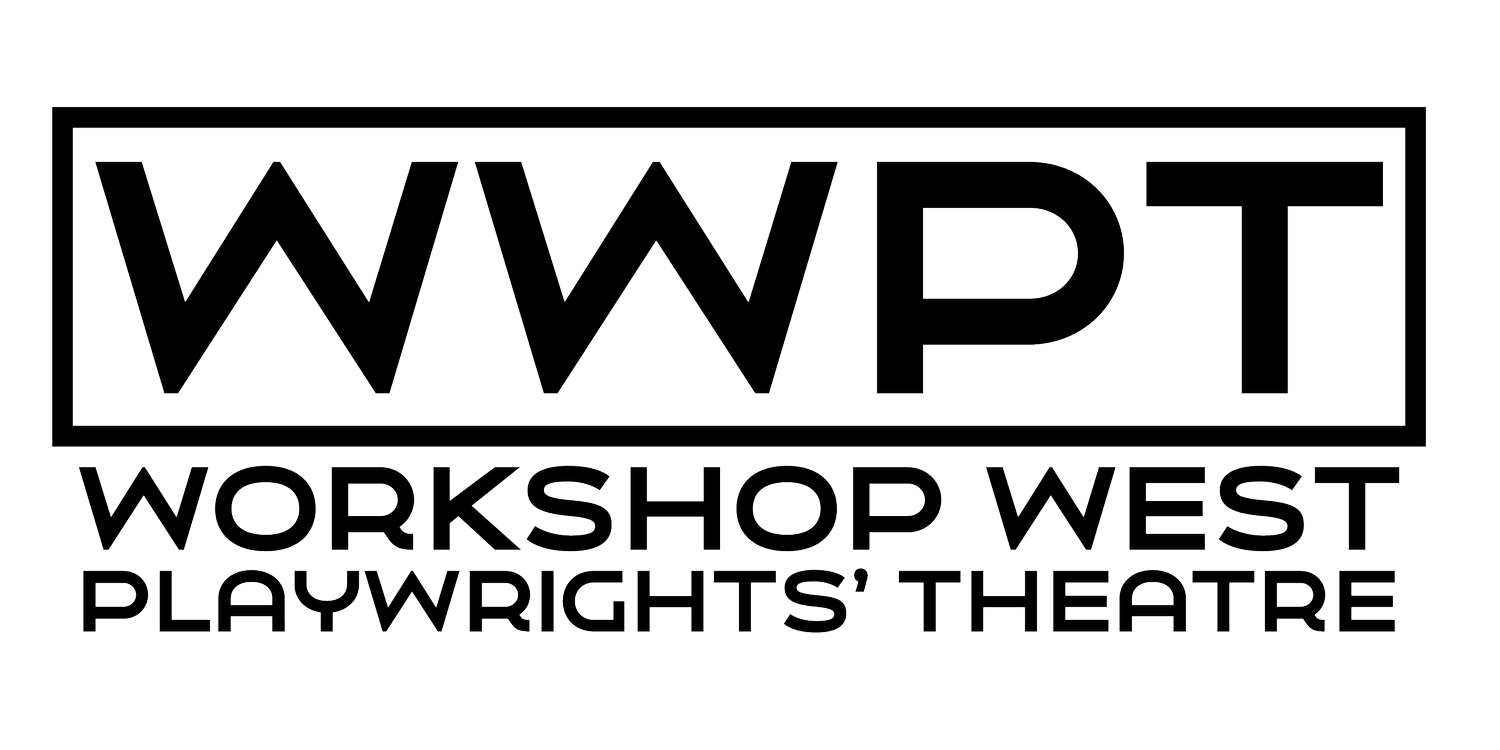Ways of Working
A Conversation with Keltie Forsyth, General Manager 2008-2012
By Jonah Dunch
When five-year-old Keltie Forsyth (née Brown) appeared in the Workshop West production of Farewell in 1990, she had no idea she would grow up to become the company’s general manager.
“It was fun for me to come back as the GM years later after having been a kid on that stage,” Forsyth says.
Skip ahead to 2008, and Forsyth was looking for work after finishing her BA in drama at the University of Alberta. A friend saw the General Manager job posting and encouraged her to apply, though Forsyth was doubtful about her prospects. But she applied and was hired, starting the job in the middle of the ’08-’09 season, the week before the company opened Kenneth T. Williams’s Three Little Birds. Forsyth hit the ground running on a decidedly steep learning curve.
“It felt like I was standing in a tennis court with one of those things that shoots balls incredibly fast at you, and I was just wildly swinging to try and knock them where they needed to be,” she recalls. “And I couldn’t always tell where they were coming [from,] and I didn’t have the capacity to anticipate them, because I didn’t really know what I was doing!”
But she soon hit her stride, thanks to training from then-Artistic Director Michael Clark and outgoing General Manager Mary-Jane Kriesel. When Forsyth stepped into her new role, Workshop West was reeling from a deficit. But fortunately, Clark and Kriesel had “tightened up much of the financial nightmare” right before Forsyth assumed her duties — so Clark and Forsyth could look ahead to a brighter future.
“Michael and I began thinking about [how to] best make the work happen, and in a way that has a positive impact on the community,” Forsyth says.
By the second season, Forsyth says, she could start to anticipate where those metaphorical tennis balls were coming from, and could keep them under control. Clark and Forsyth wanted to figure out how to grow the company with limited resources, considering alternatives to the season model that may better serve the playwright.
“It was a time to start thinking about strategically, now that we’re not in crisis mode, how do we move forward?” Forsyth says. “[This] was a very exciting time to be with the company.”
During Clark and Forsyth’s tenure, Workshop West saw a high rate of subsequent productions after premiering new works. They also gave some shows longer development periods, notably Blake Turner’s Beowulf the King. Forsyth presided over the Canoe Festival, Workshop West’s festival of new, cutting-edge work, which presented international productions like Etiquette from England and Sound Machine from Switzerland. By the time Forsyth left, Canoe had more than doubled attendance, and had moved from five days to 10.
“We really wanted to give [a place to] work that wouldn’t necessarily fit into a normal Workshop West season a home, respecting that, even though we were the playwrights’ theatre, there were other ways of developing work and other ways of working,” Forsyth says. “[We wanted to show that] Workshop West had a place in that development as well.”
In those years, Workshop West had an ongoing collaboration with Alberta Aboriginal Arts, co-presenting the Roobaboo Performance Gala—a showcase of Indigenous theatre—and several plays. Forsyth particularly remembers Daniel David Moses’s Almighty Voice and His Wife, as an Indigenous high school in Edmonton brought its classes to the performance.
“[The students] were definitely getting jokes that were completely over my head as a settler Canadian,” Forsyth says. “They were clearly getting it on this whole other level because it was speaking to them, not speaking to me, and watching them watch it was possibly one of my favourite moments I’ve ever had in the theatre.”
For a while, Forsyth says, Workshop West was part of a “rockin’” network of Western Canadian presenting companies, which helped them coordinate bringing in international artists to the region and sending Edmonton artists to other centres.
With Clark’s support, Forsyth decided to recommit to being a theatre director, and in 2012 left her position as General Manager to direct full time. She produced the Canoe Festival one last time in 2013, skipping town the night before the festival opened. For she was due in Banff, working as the Assistant Director of the Citadel/Banff Centre Professional Theatre Program’s production of Margaret Atwood’s The Penelopiad.
“I had decided to make a career switch to refocus on being an artist,” Forsyth explains.
Shortly thereafter, Forsyth moved to Vancouver to do an MFA in directing at the University of British Columbia. She then spent two years in London while her husband did an MFA in acting, and has now moved back to Vancouver—coming back with a new baby in tow. These days she mainly works as a freelance director, teacher, and producer.
While she and Clark expanded Workshop West’s reach into international and unconventional performance, Forsyth values the company’s renewed focus on the development and support of playwrights. She hopes the company continues its more recent work in highlighting voices not always seen on Edmonton stages.
“I think the landscape in Edmonton has really changed, in terms of who is doing what,” Forsyth says. “I think having a company again focused on playwrights and playwright development is really important.”


